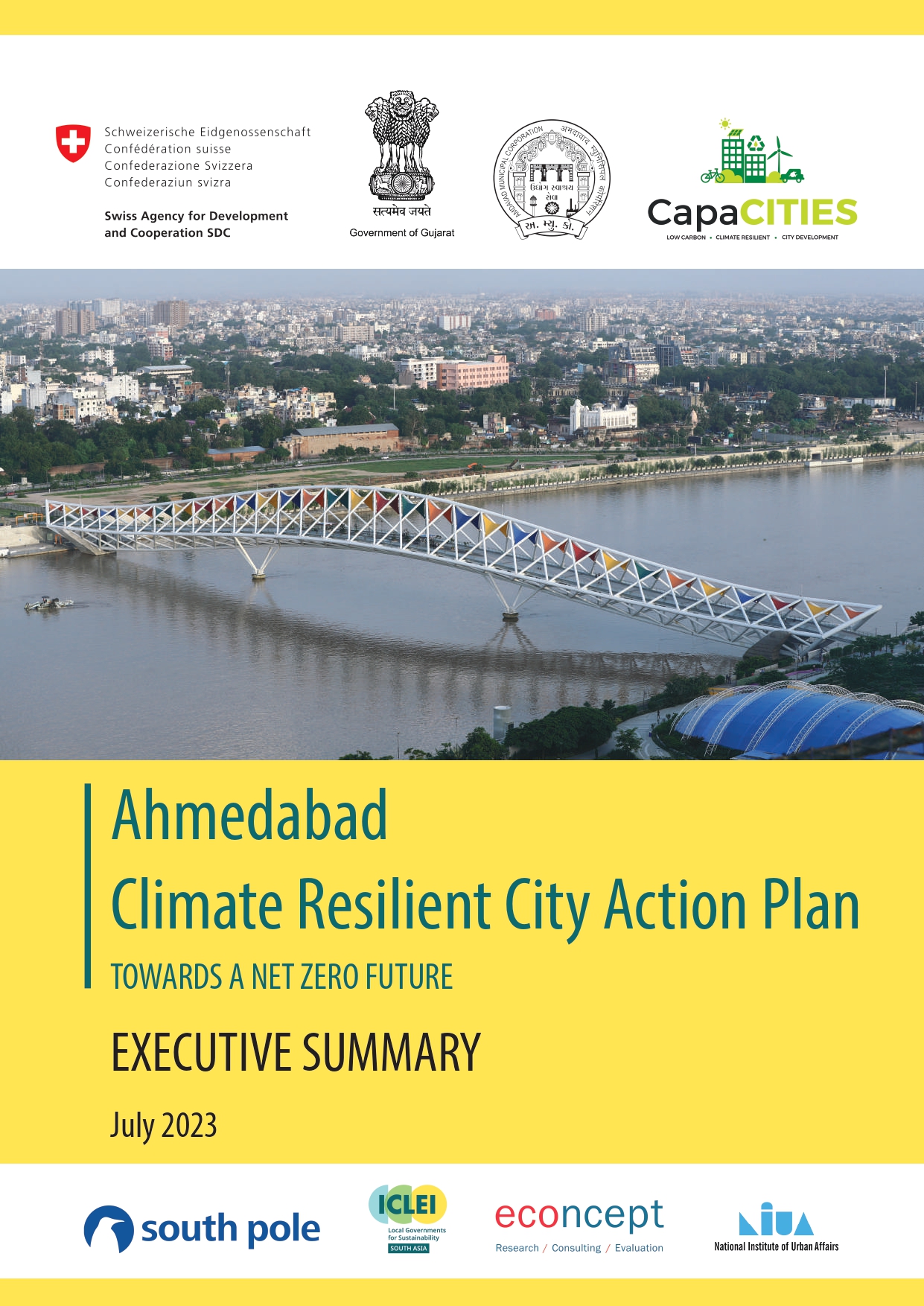| Source | Installed Capacity
(in MW) | Resource Potential
(in MW) |
|---|



Gujarat: A Leader in Solar Rooftop
No. 1 in India for rooftop solar installations
Over 3.36 lakh systems installed under PM Surya Ghar Muft Bijli Yojana (as of May 2025)
34% of all national rooftop solar installations under the scheme are in Gujarat
Rooftop solar contributes ~15% to Gujarat’s total RE installed capacity Know More

Surat's Emissions Trading Scheme (ETS):
Reduce industrial air pollution by creating economic incentives
Improve compliance with pollution norms through real-time monitoring
Establish a cost-effective, transparent trading market for emission permits Know More

Climate Change Department and European Union's International Urban Cooperation (IUC) formed the Covenant of Mayors of Gujarat (CoMG) for climate and energy in 2019. Eight Municipal Corporations (Ahmedabad, Surat, Vadodara, Rajkot, Bhavnagar, Jamnagar, Junagadh, and Gandhinagar) constituted the CoMG in sync with the Global Covenant of Mayors. It has three objectives: Reducing CO₂ emission, increasing their resilience to climate change, and ensuring access to sustainable, secure and affordable energy to all.

GEDA has been instrumental in executing the Gujarat Renewable Energy Policy 2023, aiming to harness the state's vast renewable energy potential. The policy focuses on increasing the share of renewable energy, ensuring energy security, and reducing carbon footprints by promoting wind, solar, and hybrid projects. GEDA's efforts have significantly contributed to Gujarat achieving an impressive 29 GW of renewable energy capacity, positioning the state as a leader in India's renewable energy sector.
Recognising the importance of decentralised energy solutions, GEDA has issued comprehensive guidelines for establishing off-grid solar, wind, and wind-solar hybrid projects. These guidelines aim to assist isolated entities in meeting Renewable Purchase Obligations (RPOs), promote sustainable energy use in areas without grid connectivity, and enhance energy security and environmental sustainability across the state.
GEDA has been a driving force behind the widespread adoption of solar rooftop installations in Gujarat. Through its sustained efforts and policy support, the state has emerged as a leader in decentralised renewable energy, reinforcing its commitment to clean energy transition and reduced reliance on conventional power sources.
This scheme involves simple visual investigative audits and table-top surveys of energy bills at manufacturing facilities. GEDA deploys qualified energy auditors to carry out walk-through audits in MSMEs and provide reports with recommendations for energy savings. From 2009-10 to 2018-19, GEDA conducted 3,388 such audits.
Beyond renewable energy generation, GEDA emphasises energy efficiency through various awareness programmes. Additionally, GEDA’s climate change awareness initiatives in schools and colleges aim to sensitise younger generations towards environmental challenges, fostering a culture of sustainability at the grassroot level. Since 2017-18, GEDA has supplied and installed LED tube lights in the state’s government primary schools. As a result, energy is saved and CO₂ emissions are reduced.
The scheme for installation of solar water heating in government hostels/Adarsh Nivasi Shalas/Vishram Gruh of Yatradham in the state is being implemented by GEDA. This leads to an annual saving of 80.44 million electricity units and prevents nearly 80,500 tonnes of carbon emissions.
BURD is an ambitious programme that aims to mobilise children as energy guards. The programme is designed to help students, teachers and others acquire energy skills as life skills by encouraging the participation of schools and students in the process of achieving energy efficiency and low emissions. The programme is implemented since 2003-04 in partnership with Community Science Centres of Gujarat Council of Science and Technology (GUJCOST).
GEDA is working on the execution of more efficient and yet culturally acceptable cremation systems for energy and environment conservation. Gujarat has also been successful in converting as many as 9,552 crematoria (as of March 2025) to electric and gas based for reducing the load on firewood resources. GEDA is implementing this scheme through Gram Panchayat/Taluka Panchayat/ Nagar Palikas of the state.

Focus:
Electricity and energy, transport, industry, AFOLU, waste
Objective:
Focuses on climate-proofing development priorities through a bottom-up approach

Focus:
Electricity and energy, transport, industry, AFOLU, waste
Objective:
Focuses on climate-proofing development priorities- through a bottom-up approach

Focus:
Climate resilience
Objective:
Focuses on climate-proofing development priorities
